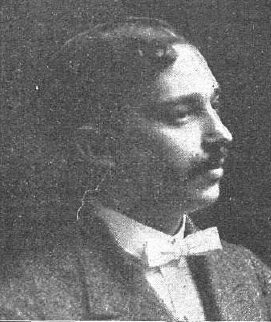
"A las Barricadas" was one of the most popular songs of the Spanish anarchists during the Spanish Civil War. "A las Barricadas" is sung to the tune of "Whirlwinds of Danger" ("Warszawianka"), composed by Józef Pławiński. The lyrics written by Valeriano Orobón Fernández in 1936 were partly based on the original Polish lyrics by Wacław Święcicki.

María Natalia Lafourcade Silva is a Mexican singer and songwriter who performs in genres such as pop rock, jazz, and folk music. Since her debut in 2002, she has been one of the most successful singers in Latin America and the United States. Lafourcade's voice has been categorized as a lyric soprano.

Vicente Fernández Gómez was a Mexican mariachi singer, actor and film producer. Nicknamed "Chente", "El Charro de Huentitán", "El Ídolo de México", and "El Rey de la Música Ranchera", Fernández started his career as a busker, and went on to become a cultural icon, having recorded more than 100 albums and contributing to more than 30 films. His repertoire consisted of rancheras and other Mexican classics such as waltzes.

María de los Ángeles de las Heras Ortiz, better known as Rocío Dúrcal, was a Spanish singer and actress with a career spanning more than four decades. She performed pop music, bolero, mariachi and romantic ballads and is widely regarded as one of the greatest Spanish singers of all time. Popular across Mexico and Latin America, she earned the sobriquet of Reina de las Rancheras.

Salvador Seguí i Rubinat, known as El noi del sucre for his habit of eating the sugar cubes served him with his coffee, was a Catalan anarcho-syndicalist in the Confederación Nacional del Trabajo (CNT), a Spanish confederation of anarcho-syndicalist labor unions.

Pan de muerto is a type of pan dulce traditionally baked in Mexico and the Mexican diaspora during the weeks leading up to the Día de los Muertos, which is celebrated from November 1 to November 2.

The Guadalajara International Film Festival is a week-long film festival held each March in the Mexican city of Guadalajara since 1986.

K-Hito was the pseudonym of Ricardo García López (1890–1984), Spanish humorist, caricaturist, bullfighting critic, film producer, and magazine publisher. Considered part of the Generation of '27, he was the founder and director of four magazines, in the pages of which he created several characters, such as Gutiérrez, Macaco, Currinche, and Don Turulato.

Eva María Muñoz Ruíz, known professionally as Evita Muñoz "Chachita", was a Mexican actress and comedian. Her professional career began in 1941, when she was only four years old, and she continued performing through, and contributing to, the Golden Age of Mexican cinema. Muñoz was still four years old when she played the character Chachita in her second film, ¡Ay, Jalisco, no te rajes! (1941), and went on to play Chachita in eight more films and numerous television roles over the subsequent decades, and would be credited as Eva Muñoz "Chachita" in other appearances. For more than 75 years, "Chachita" was recognized as a successful artist in cinema, television, theater, radio, nightclub and circus shows.
Los Olvidados is a 1950 Mexican film directed by Luis Buñuel.
Dia de los Muertos is an American death/thrash metal band formed in Los Angeles in 2005 by Andres Jaramillo and Alfonso Pinzón of Agony and bassist Vincent Price of Body Count. To date, the band has released two EPs and one full-length studio album.

The Jalisco New Generation Cartel or CJNG, is a Mexican criminal syndicate, based in Jalisco and headed by Nemesio Oseguera Cervantes. The cartel has been characterized by extreme violence and public relations campaigns. Though the CJNG is known for diversifying into various criminal rackets, drug trafficking remains its most profitable activity. The cartel has been noted for cannibalizing some victims during the training of new sicarios or members, as well as using drones and rocket-propelled grenades to attack enemies.
Andrés Jair Rentería Morelo, commonly known as Andrés Rentería, is a Colombian footballer who plays as a forward for Alianza Petrolera.

On 1 May 2015, the Jalisco New Generation Cartel (CJNG) carried out a series of attacks in Jalisco, Mexico, and four adjacent states to prevent the capture of Nemesio Oseguera Cervantes, their suspected leader. The operation began early that morning in Villa Purificación, where four Mexican Air Force and Federal Police (PF) helicopters spotted a CJNG convoy protecting El Mencho. As one of the helicopters flew over the convoy, the CJNG members shot it down using rocket-propelled grenade (RPG) launchers. Nine law enforcement officers died as a result of the attack, and multiple others were wounded. This was the first incident in the Mexican Drug War in which organized crime groups shot down an aircraft.

Eugenia León is a Mexican singer. In 1985, she won first place at the prestigious OTI Festival in Seville, Spain with the theme "El Fandango Aquí" by Marcial Alejandro. A recipient of the Latin Grammy Lifetime Achievement Award, she has had a career spanning more than 35 years and 26 recorded albums, of which several million copies have been sold. She has performed in some of the most important venues in Mexico, such as the Palacio de Bellas Artes, the Auditorio Nacional, the Sala Nezahualcóyotl, the Teatro de la Ciudad, and the Cervantino Festival.
Events in the year 2021 in Bolivia.
Miel San Marcos is a Guatemalan Christian music group made up of the three brothers Josh, Luis and Samy Morales. The name "Miel" is derived from the initials of Elim Ministries, the initial name of the Tabernacle of Avivamiento church, and San Marcos, by the name of the department in which it is located. All his albums have been recorded live, except, Tu Habitación, their first studio album.
The 2022–23 Segunda Federación season is the second season for the Segunda Federación, the fourth-highest level in the Spanish football league system. Ninety teams participate, divided into five groups of eighteen clubs each based on geographical proximity. In each group, the champions are automatically promoted to Primera Federación, and the second to fifth placers are qualified to the promotion play-offs. The last five teams in each group are relegated to the Tercera Federación; in addition, the four worst teams classified 13th in their group play in the relegation play-offs, to define the last two relegation places.
The following is a chronology of notable events from the year 2023 in Bolivia.












